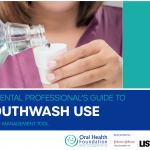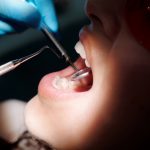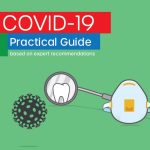When former Oral Health Foundation President Janet Goodwin sadly passed away in October 2020 she left behind a great legacy. It is in recognition of this that the Oral Health Foundation have joined together with the British Association of Dental Nurses (BADN) to launch the Janet Goodwin Memorial Fund.
An influential figure within oral health, Janet spent much of her career championing the importance of education and the career development of dental nurses. It is for this reason that it seemed only fitting for a memorial fund be set up in her name to further that cause.
The Janet Goodwin Memorial Fund will support dental nursing students and registered dental nurses with bursaries for the development of their careers. For dental nursing students, this might take the form of financial help with their education, while qualified dental nurses can apply for support with post-graduate studies.
The Oral Health Foundation and BADN hopes the new series of grants can help provide much needed financial support for individuals pursuing a career in dental nursing.
Dr Nigel Carter OBE, Chief Executive of the Oral Health Foundation, believes the fund goes straight to the heart of Janet’s work.
Dr Carter says: “I would like to think Janet would be really proud by a project like this. During her distinguished career, Janet battled hard for her profession and made fantastic strides in boosting the visibility of dental nursing amongst the profession and the public.
“Janet was a terrific ambassador for her fellow dental nurses and what better way to honour that than through a fund which will help dental nurses further their careers. By providing support for our future dental nurses, as well as current ones, this fund will help secure a stronger and brighter future for dentistry as a whole.”
Janet was used to breaking down barriers during her career and was passionate about improving the oral health of people up and down the country.
In 2015, Janet became the first dental nurse to be elected President of the Oral Health Foundation in the charity’s nearly 50-year history. She also was the first dental nurse admitted to the General Dental Council. Always looking for new challenges, Janet was also Chair of the National Examining Board for Dental Nurses – on the second dental nurse to hold that position – and later employed by the NEBDN as Qualifications Manager.
Janet was a long-time active member, and Fellow, of the British Association of Dental Nurses and was also a recipient of their ‘Outstanding Contribution to Dental Nursing Award’.
Jacqui Elsden, President of the British Association of Dental Nurses, adds: “It is without doubt that Janet will be truly missed across the Dental community. She was a wonderful advocate for our dental nursing profession, particularly for dental nurse education and oral health care. I feel immensely proud to be part of the collaboration leading to the founding of the Fund in her memory. It will be a unique opportunity for dental nurses to begin or further their career in dental nursing and inspire a new generation.”
To find out more about the Janet Goodwin Memorial Fund and to make a donation, visit www.dentalhealth.org/janetgoodwin.














